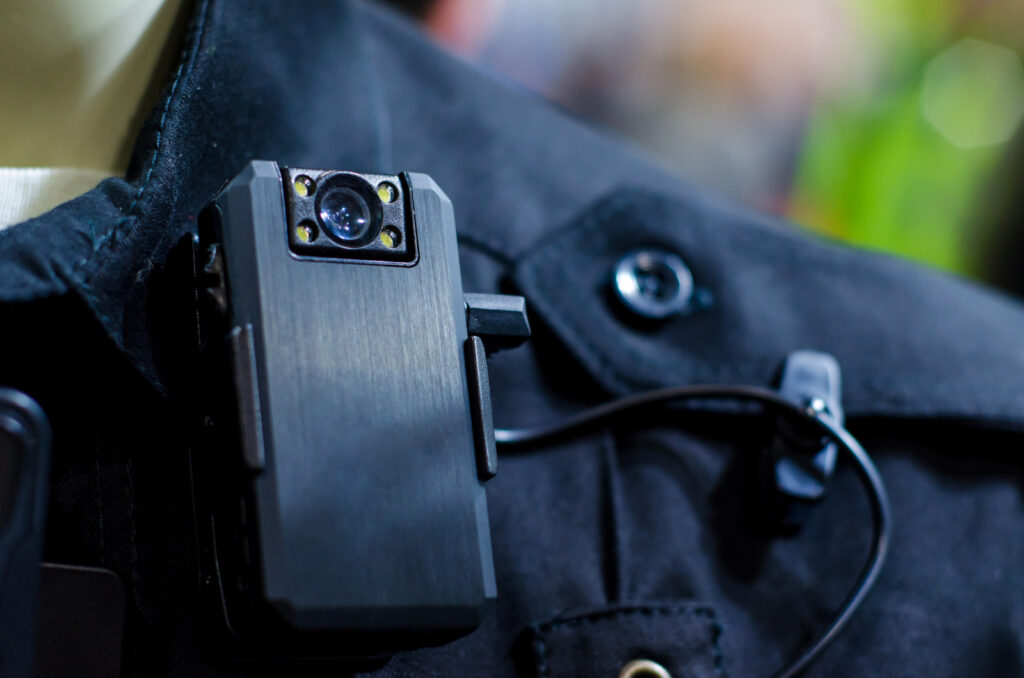By Jeffrey A. Roberts
CFOIC Executive Director
Colorado’s Children’s Code does not prohibit the public disclosure of blurred body-worn camera footage of Lakewood police shooting and killing a 17-year-old robbery suspect in 2023, the Colorado Court of Appeals ruled Thursday.
Affirming a district court decision, a three-judge appellate panel rejected the city of Lakewood’s argument that the statute which protects the confidentiality of juvenile records trumps the footage-release provisions in the 2020 Law Enforcement Integrity Act. The statute, the judges concluded, “unambiguously required the court to release” the video.

The body camera footage is not a “juvenile record” under the Children’s Code, the opinion says. Rather, “it is a conduit through which information from a juvenile record might be disclosed absent blurring of the video. And even in that circumstance — where the BWC footage might reveal a juvenile record — the statute does not bar release of the footage. The court must still release the footage, but it must blur the video to account for the juvenile’s privacy interest.”
The case concerns the shooting of Mariana Martinez by Lakewood police on March 27, 2023. According to a news story, the department initially said Martinez fired at officers but clarified the next day that she pointed a gun at them. First Judicial District Attorney Alexis King found that the officers’ use of deadly force against Martinez “was legally justified to defend themselves and others from the threat posed by Miss Martinez.”
Although the Law Enforcement Integrity Act requires the release of unedited video and audio of incidents “in which there is a complaint of peace officer misconduct” no later than 21 days after a request is made, Lakewood denied a request for the footage made by Scripps News journalist Lori Jane Gliha. Scripps News subsidiary Ion Media Networks sued, represented by media attorney Steve Zansberg, and in May 2024 Jefferson County District Court Judge Chantel Contiguglia found that “a plain reading of the law” required disclosure of the footage.
The Law Enforcement Integrity Act allows for redactions if a video “raises substantial privacy concerns” for criminal defendants, victims, witnesses, juveniles or informants. Contiguglia ordered that the “entirety” of Martinez’s head and face be blurred before the video is released because of the “distinct coloring of her hair.”
Lakewood contended that blurring alone was insufficient to protect the 17-year-old’s privacy because her “final breaths” can be heard on the audio. “But the City cites no authority suggesting that the district court is authorized to mute or otherwise limit the public’s access to the sound of an audio recording,” says the Court of Appeals opinion, written by Judge Timothy Schutz.
Even so, the opinion adds, the judges “could not hear any words spoken” by Martinez on the footage. “Rather, her sounds were limited to gasps for breath and expressions of pain. The audio portion reveals the physical act of dying. But the statute clearly contemplates the release of BWC video and audio recordings that depict the death of an individual.”
Schutz also wrote that “even if we were to adopt the City’s flawed interpretation, the statute would not prevent the release” of the body camera footage. Assuming the footage qualifies as a “record of law enforcement officers concerning juveniles” under the Children’s Code, the statute allows a court to order public disclosure.
The Colorado Freedom of Information Coalition and other organizations submitted an amicus brief in the Ion Media case in January, contending that Lakewood’s appeal was “a transparent attempt to turn back the clock” on public access to law enforcement body-camera footage.
“[T]he fact that the individual whose death involved peace officers was a minor heightens the public’s interest in obtaining timely access” to the footage, CFOIC’s brief argued, adding that Lakewood’s violation of the 21-day disclosure deadline in the Law Enforcement Integrity Act “destroys the contemporary news value of the information the press seeks to disseminate, infringing on the public’s right to speedy access.”
Follow the Colorado Freedom of Information Coalition on X or BlueSky. Like CFOIC’s Facebook page. Do you appreciate the information and resources provided by CFOIC? Please consider making a tax-deductible donation.




